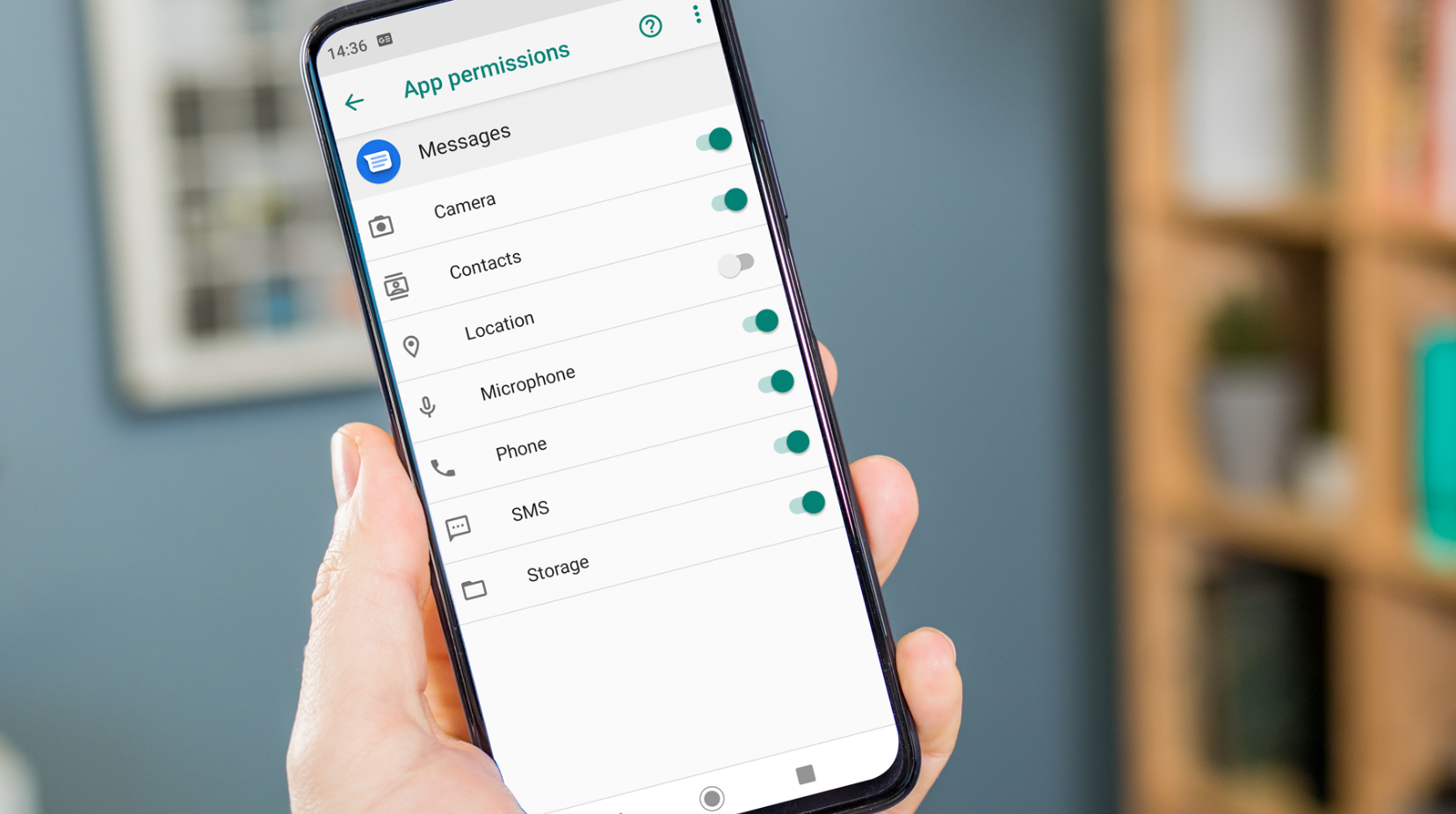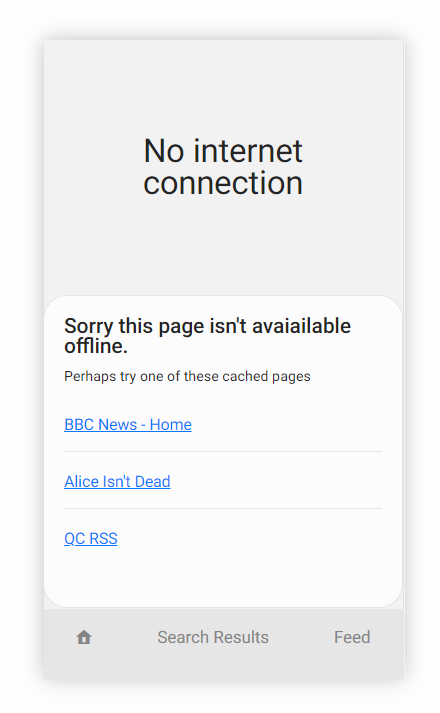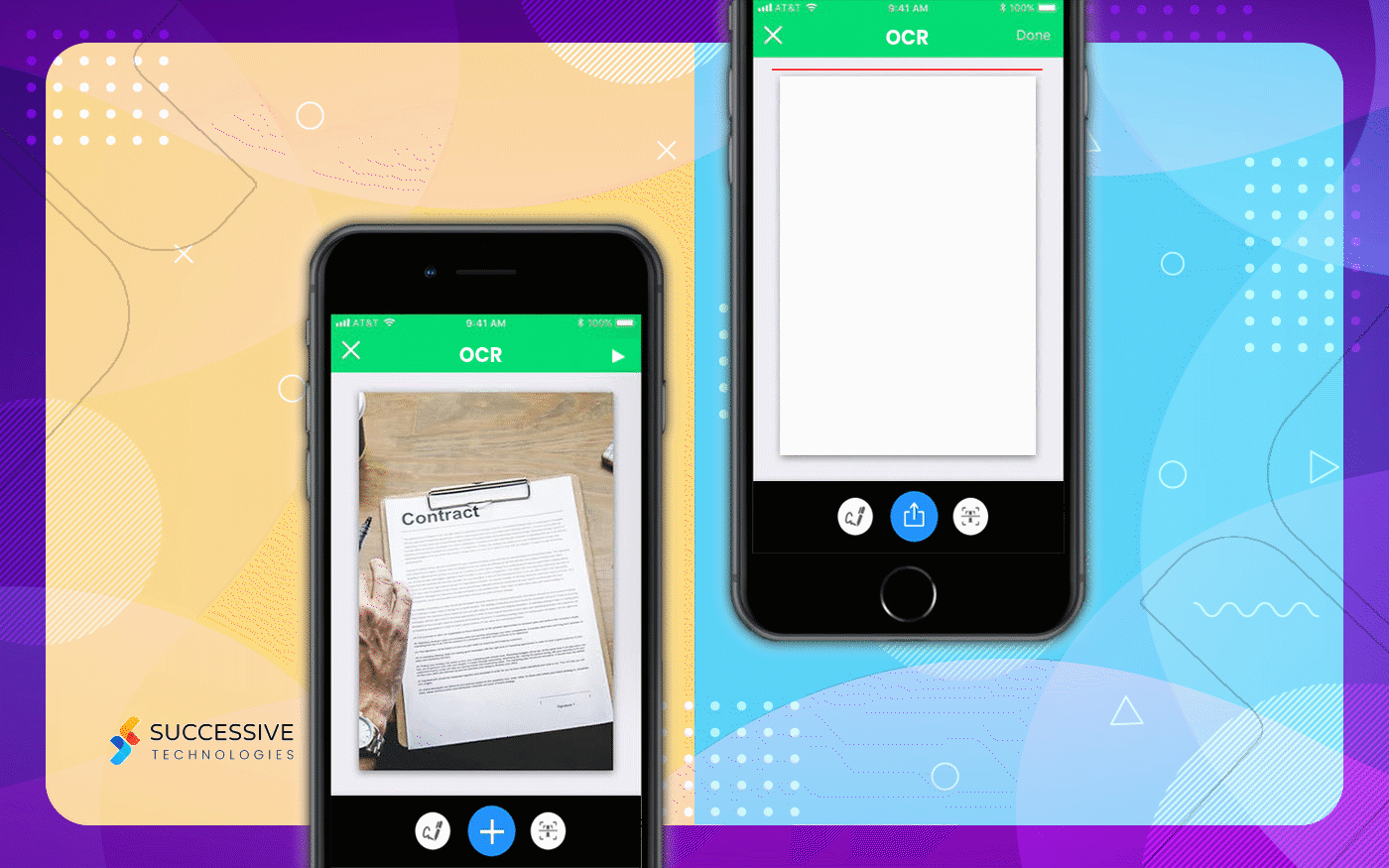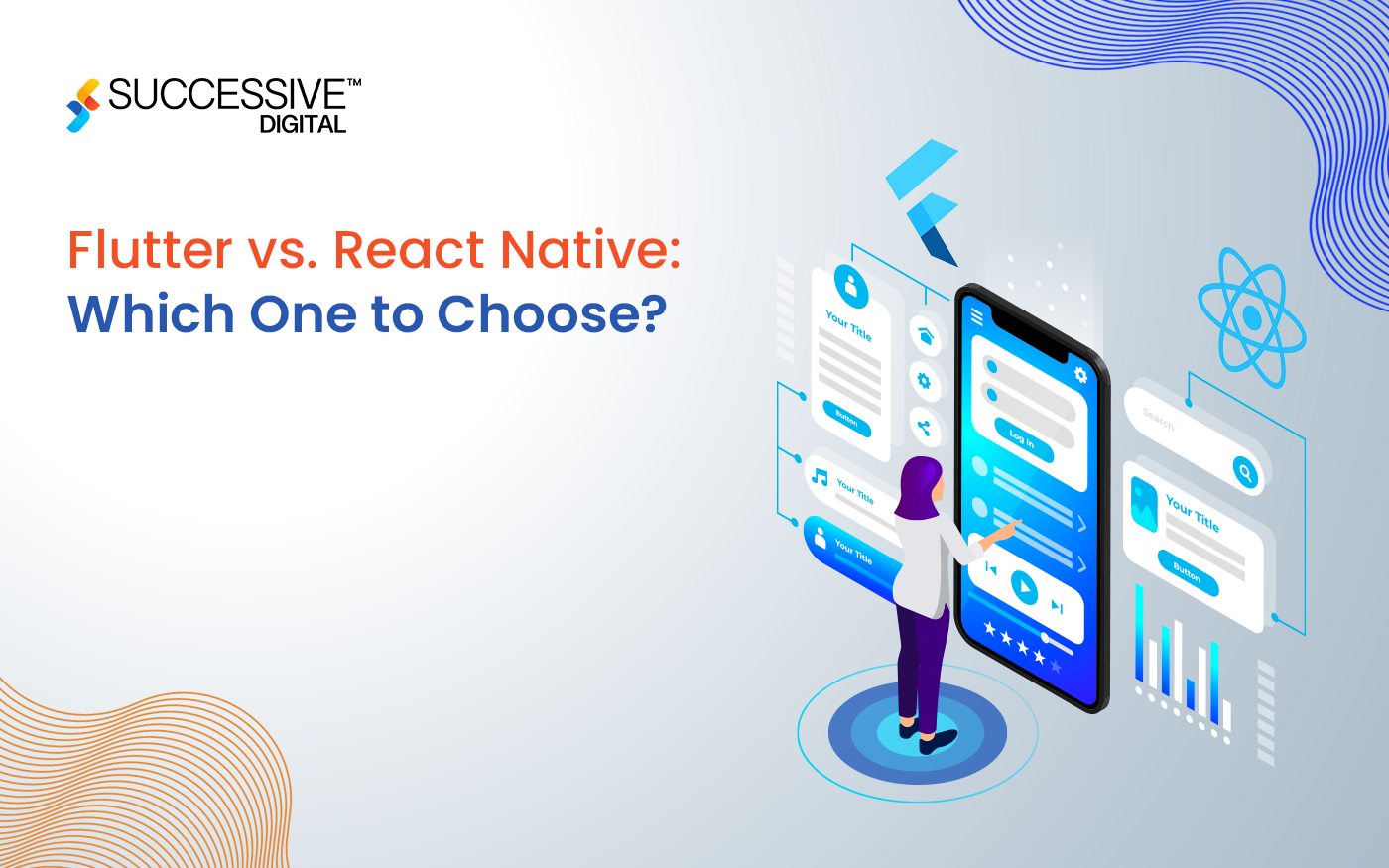Mobile apps are, in great part, the modern smartphone user’s gateway to the digital world. It naturally follows that many brands are leveraging mobile apps to be where their customers are. But advancements in the field of software development have brought a more economical solution to the table: web apps.
Web apps are often misunderstood as glorified websites when they are so much more. Modern web apps are often indistinguishable from native mobile apps but come with the added advantage of being compatible with every digital device that supports web browsers.
With this potent new software solution available to pursue, enterprises are now facing the mobile app vs web app dilemma. To resolve this dilemma and make the decision to go with either (or both) software solutions easier, here’s a breakdown of what mobile apps and web apps are capable of doing and how to identify which solution is most ideal.
Mobile apps vs web apps: what’s the difference?
Before diving into which app solution your business needs, let’s explore the key differences between mobile apps and web apps, and their respective strengths and weaknesses.
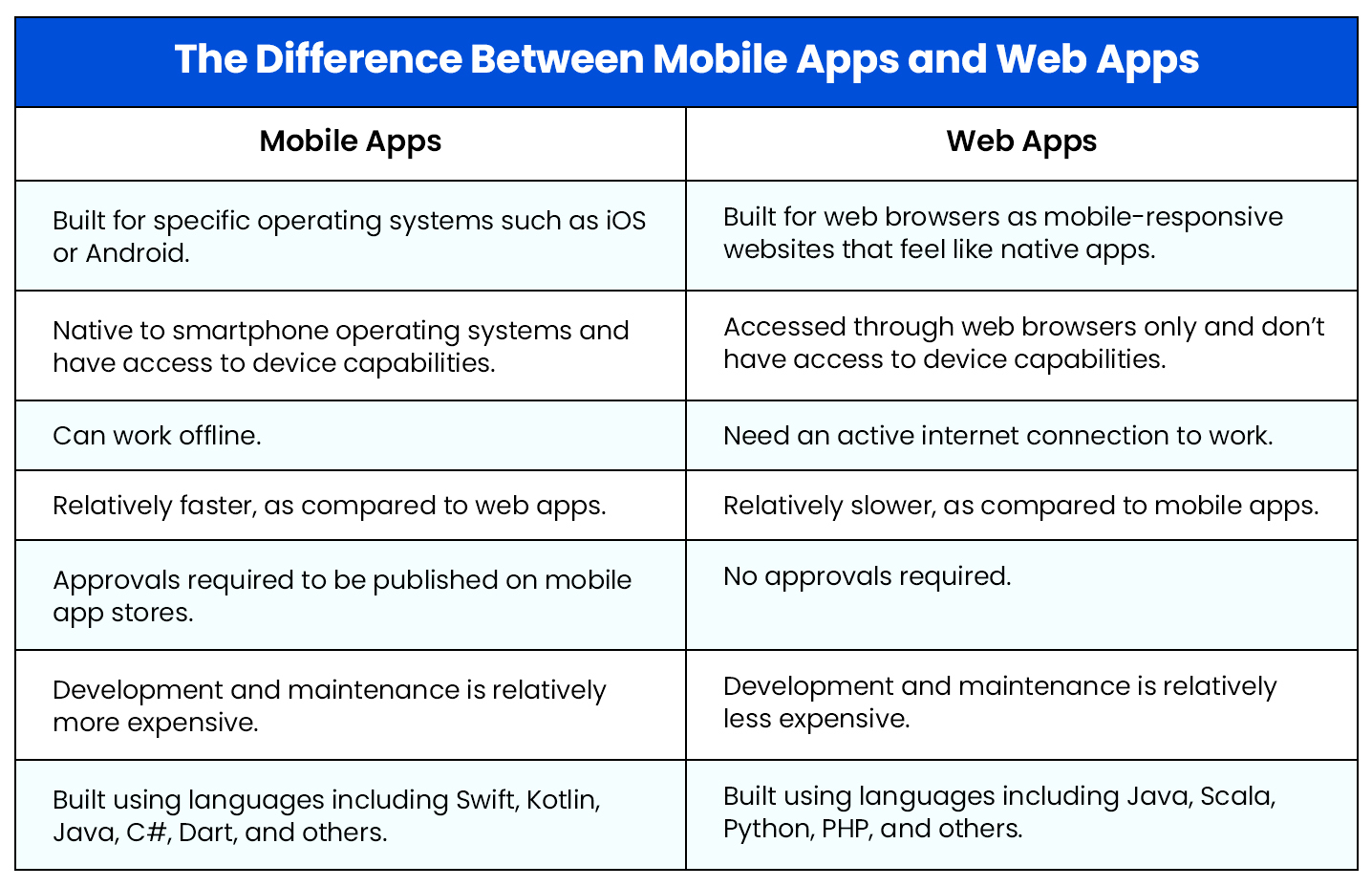
Mobile apps
Mobile applications are built for specific operating systems and platforms. With the advent of cross-platform app development frameworks like Flutter and React Native, mobile app development for multiple platforms is becoming faster and more economical.
Mobile apps are downloaded through mobile app stores like Apple’s App Store and Google’s Play Store and accessed directly from the smartphone device. They make use of device capabilities such as GPS, camera, microphone, system notifications, etc.
As compared to web apps, mobile apps can deliver more personalized and engaging user experiences—even without an active internet connection.
Mobile apps generally have better performance than web ‘apps’ that run as websites on browsers. But unlike web apps, mobile apps take up space on the user’s device. This can impact download numbers if the app is too heavy. Mobile apps must also meet stringent app store quality standards before being approved for publishing.
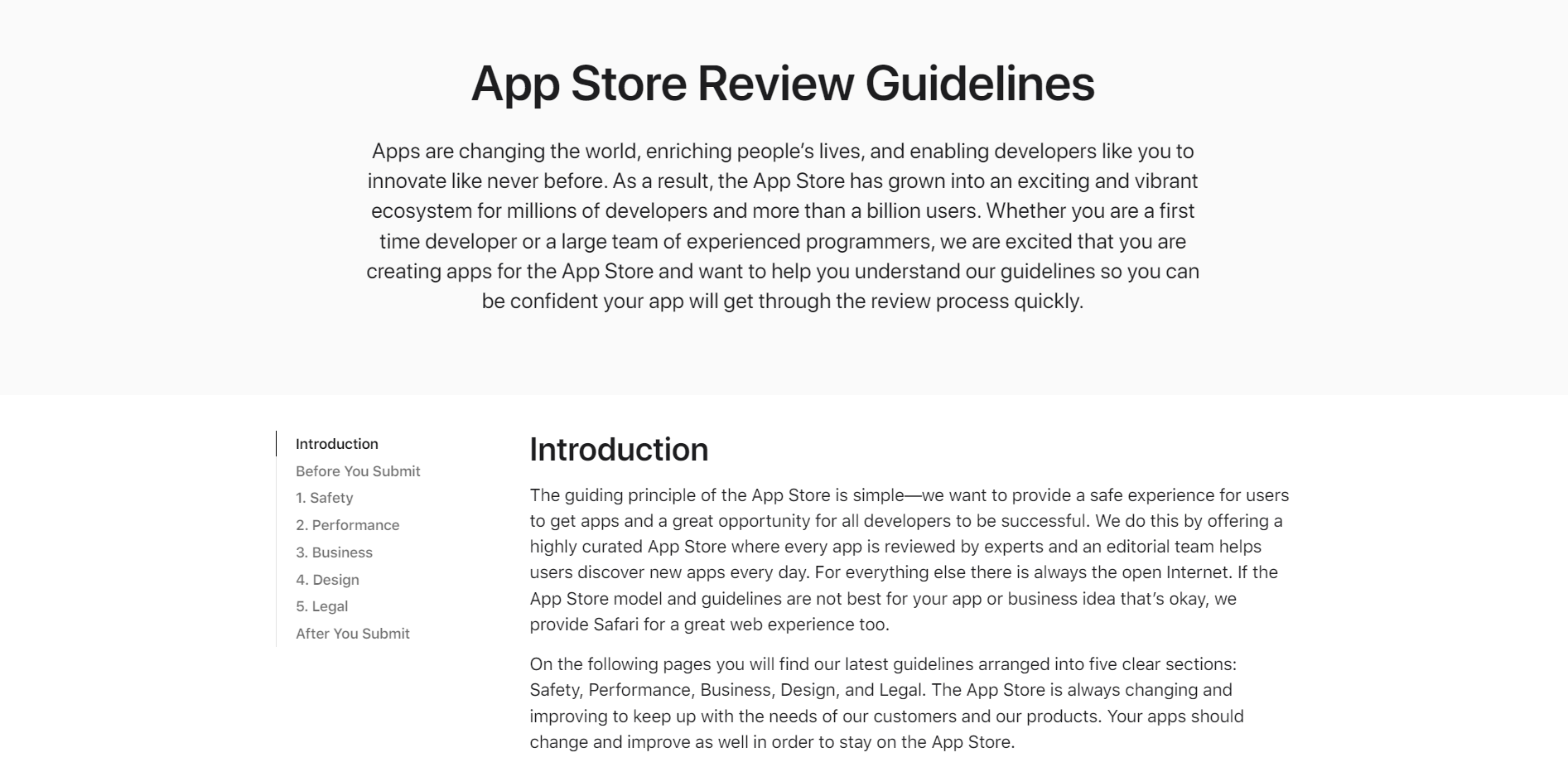
Depending on software complexity, engineering mobile apps is more expensive than building an app-like website.
Also Related: Launching Web Apps with Flutter: A Comprehensive Guide
Web apps
Web applications are essentially responsive websites with the look and feel of native apps.
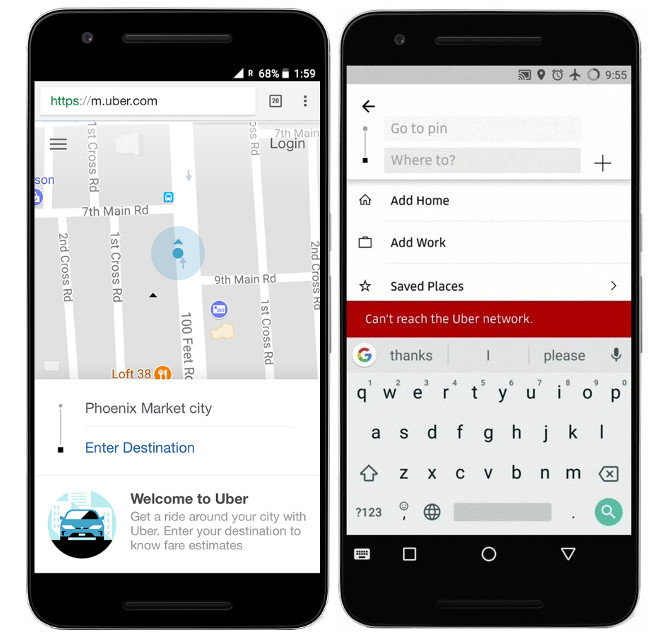
Uber’s web app (left) is nearly indistinguishable from its mobile app (right) and offers most of the functionalities as the latter. Source: Fone Arena
Like any other website, these ‘apps’ are accessed through web browsers on devices. This means that these apps are device-agnostic and don’t have to be downloaded, which translates to consistent user experiences that don’t take up a lot of device memory.
Additionally, unlike mobile apps, web apps don’t need approvals from mobile app stores. Development time is also quicker given that web apps are built on a common codebase, which means enterprises can take their product to the market much faster and at relatively lower engineering and maintenance costs.
But unlike mobile apps, web apps don’t work without an internet connection. Further, web apps don’t have access to many device capabilities that mobile apps do. This can seriously limit user experiences.
Web apps are also relatively slower than mobile apps, though developers can performance-optimize websites to load faster and deliver more seamless user experiences.
Mobile app vs web app: which should you build?
Between the two options—mobile app vs web app—the final choice boils down to what your business goals are, and how software can help you achieve those goals.
Answer the following questions to arrive at the best solution for your business objectives.
1. Why are you building an app?
This is the most crucial question to answer before planning and kickstarting a mobile app development project.
What can a mobile app do for your business that a website or web app cannot? Do you have evidence that points toward the need for a mobile app for your enterprise? Will a mobile app achieve a greater return on investment as compared to a web app? Will it deliver a better user experience?
Answering this holistic question can help you align your development goals with your business goals and help you arrive at a software solution best suited for your needs.
2. Will your users need to use the app offline?
Do any of your app use cases demand offline operation? Will caching content or building a customized offline page on a web app be useful in such scenarios? Will your web app still support necessary native features without an active internet connection?
If the answer to these questions is ‘no,’ then a mobile app will be the most viable software solution for your needs.
3. Will your app need device-native capabilities?
Web apps today can leverage device capabilities nearly as much as native apps. They can use a phone’s geolocation, motion and orientation capabilities, camera, and microphone as seamlessly as native apps.
But web apps still struggle to access device systems and make changes on a systemic level. Further, hardware connection limitations such as lack of Bluetooth access, proximity sensing, gallery access, phonebook access, inter-app sharing, user-idle detection, sending messages, etc. can be limiting for enterprises that want their apps to include these functionalities.
Additionally, iOS devices pose many limitations on hardware connectivity with web apps, which can defeat the development purpose.
Therefore, if your app needs specific device-native capabilities that websites can’t access and harness, you’re better off building a native mobile app instead.
Also Read: The Ultimate Guide to iOS App Development
4. How fast do you want your product to reach users?
Building customized native mobile apps can take significantly more time than building web apps, depending on the number and complexity of functionalities needed. Further, distributing apps on app stores requires approvals, which can be a long-drawn process—especially if your software is rejected and needs to be reworked.
Many enterprises want to build and release a minimum viable product as soon as possible. Unless build-quality and rushed user experience aren’t a concern, enterprises with urgent app requirements can build web apps.
5. What’s your development budget?
Native mobile app development for different operating systems can be more expensive than building a native-like web app that runs on browsers. This is especially true for projects that don’t use cross-platform development frameworks.
If your team doesn’t have the budget allocated to undertake a mobile app development project, a web app can be a more economical alternative.
6. Do you have the team to develop the right app?
Your web development team that built you a website may have the skill set to build web apps, but they may not have the required skills to build full-fledged native mobile apps. Even if you have a mobile app development team, they may have the app development know-how specific only to one operating system.
This means that you’ll either have to hire an app developer/team of app developers or a mobile app development company to train your team to pick up the required skills.
Both approaches will cost you time and money that can otherwise be invested elsewhere. This is why many enterprises hire app development partners like Successive Digital to build powerful mobile apps/web apps at minimal risk and optimal return on investment.
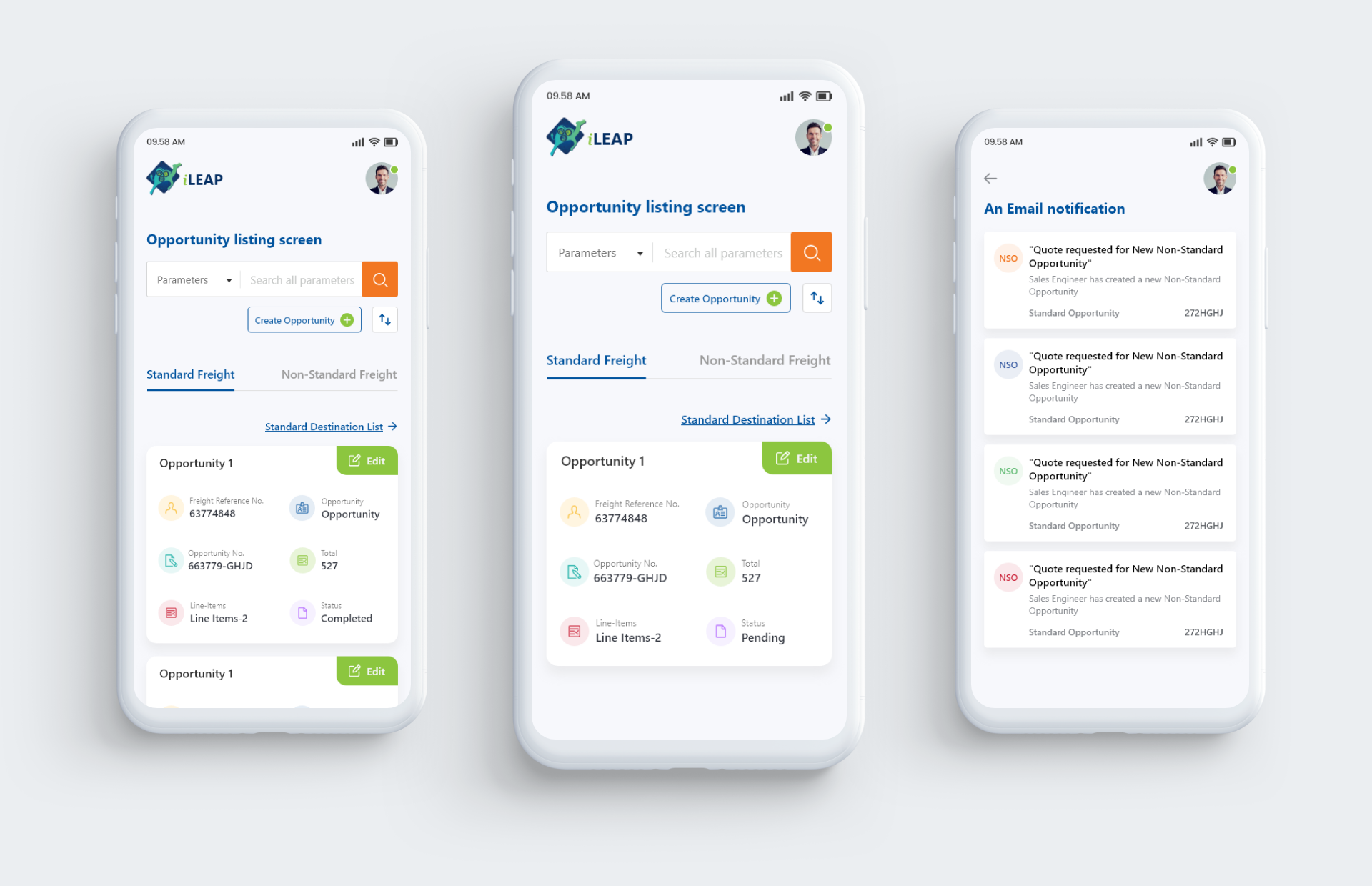
Successive Digital’ mobile app solution helped a technology brand increase operational efficiency by 90 percent and reduced manual work by 65 percent. Learn more here.
Choose a solution that’s best for your users—and business!
When comparing mobile app vs web app for enterprise needs, there’s no clear winner. Web apps are faster and more economical to build and can perform (and look) almost like native apps, while native apps can work offline and have better performance and hardware connectivity.
Depending on your app’s potential use cases and user experience requirements, your team’s development budget, resource availability, time constraints, and other factors, one software solution may take precedence over the other. You may also decide to drop the app development idea altogether, or you may choose to build both versions!
But no matter what software solution you pick, remember to keep the user at the center of it all and deliver delightful brand experiences that keep them coming back for more!
Read Next: The Surging Importance of a Mobile-First Design Approach for Enterprise Web Projects








